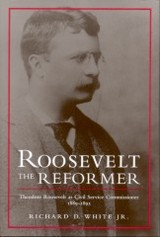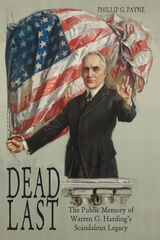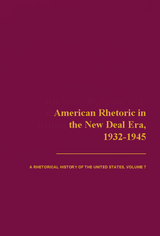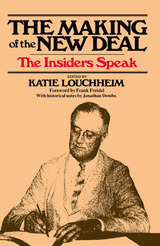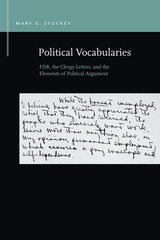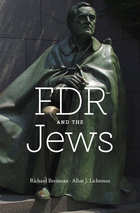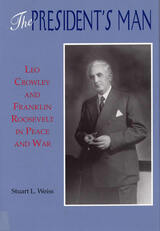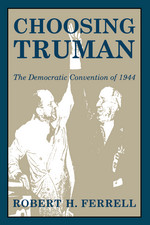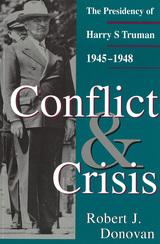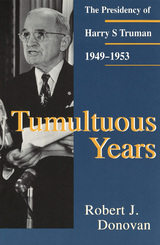F. D. R. and the Press
University of Chicago Press, 1979
Cloth: 978-0-226-89512-3
Library of Congress Classification E806.W456
Dewey Decimal Classification 320.9730917
Cloth: 978-0-226-89512-3
Library of Congress Classification E806.W456
Dewey Decimal Classification 320.9730917
ABOUT THIS BOOK | AUTHOR BIOGRAPHY | TOC
ABOUT THIS BOOK
Franklin D. Roosevelt's tempestuous, adversary relationship with the American press is celebrated in the literature of his administrations. Historians have documented the skill and virtuosity that he displayed in his handling and exploitation of the press. Graham J. White discovers the well of Roosevelt's excessive ardor: an intractable political philosophy that pitted him against a fierce (though imaginary) enemy, the written press.
White challenges and disproves Roosevelt's contention that the press was unusually severe and slanted in its treatment of the Roosevelt years. His original work traces FDR's hostile assessment of the press to his own political philosophy: an ideology that ordained him a champion of the people, whose task it was to preserve American democracy against the recurring attempt by Hamiltonian minorities (newspaper publishers and captive reporters) to wrest control of their destiny from the masses.
White recounts Roosevelt's initial victory over the press corps, and the effect his wily manipulations had on press coverage of his administrations and on his own public image. He believes Roosevelt's denunciation of the press was less an accurate description of the press's behavior towards his administrations than a product of his own preconceptions about the nature of the Presidency. White concludes that Roosevelt's plan was to disarm those he saw as the foes of democracy by accusing them of unfairly maligning him.
White challenges and disproves Roosevelt's contention that the press was unusually severe and slanted in its treatment of the Roosevelt years. His original work traces FDR's hostile assessment of the press to his own political philosophy: an ideology that ordained him a champion of the people, whose task it was to preserve American democracy against the recurring attempt by Hamiltonian minorities (newspaper publishers and captive reporters) to wrest control of their destiny from the masses.
White recounts Roosevelt's initial victory over the press corps, and the effect his wily manipulations had on press coverage of his administrations and on his own public image. He believes Roosevelt's denunciation of the press was less an accurate description of the press's behavior towards his administrations than a product of his own preconceptions about the nature of the Presidency. White concludes that Roosevelt's plan was to disarm those he saw as the foes of democracy by accusing them of unfairly maligning him.
See other books on: 1882-1945 | 1933-1945 | Government and the press | Press | Roosevelt, Franklin D. (Franklin Delano)
See other titles from University of Chicago Press


